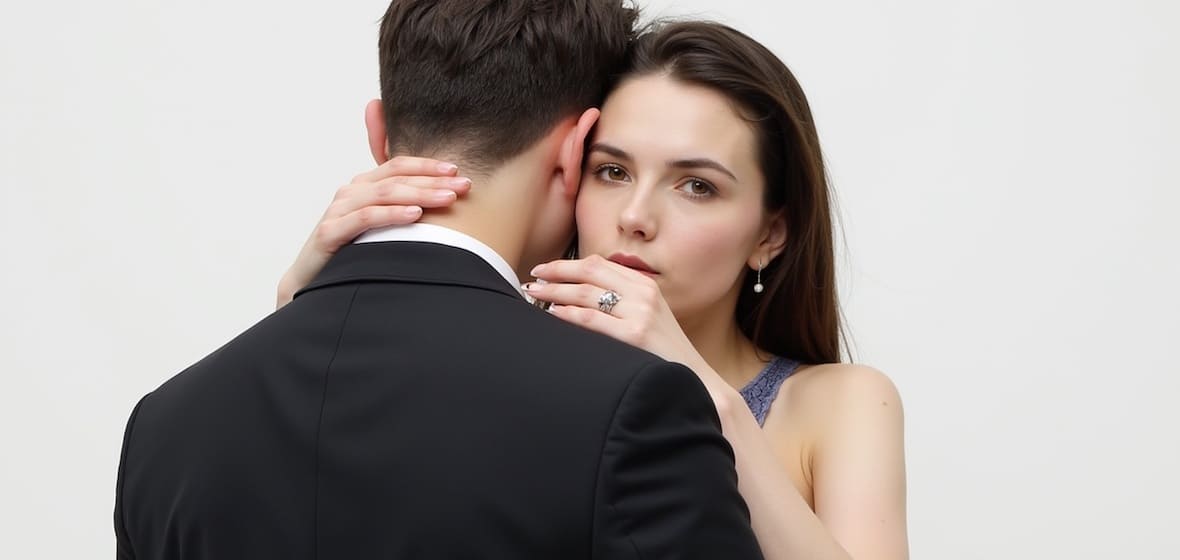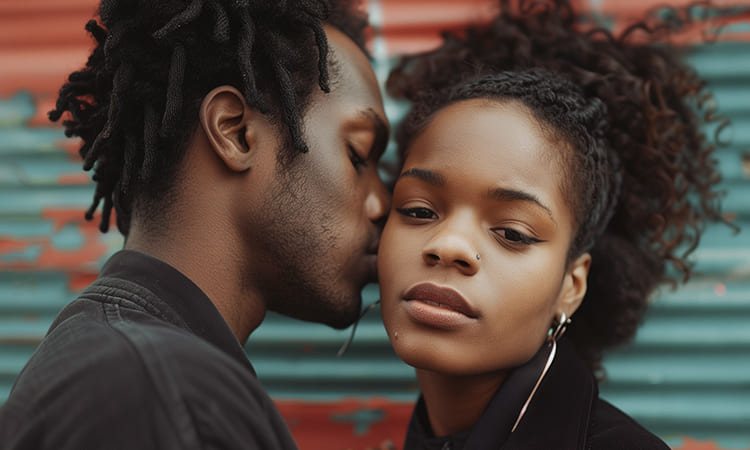Ah, the first date. The very phrase can conjure a potent mix of anticipation and anxiety.
For many, the biggest hurdle isn’t finding a compatible person, but navigating that initial, often awkward, encounter.
Will there be comfortable conversation or dreadful silences? Will I say something stupid? What if I trip on the way to the table?
These jitters are perfectly normal, a universal human experience rooted in the complex interplay of hope, vulnerability, and the primal fear of being judged or rejected.

As a psychologist, I’ve spent years helping people understand and manage these challenging emotions.
The good news? While a little awkwardness is inherent in any new social interaction, you absolutely have the power to reduce its intensity and impact, transforming a potentially cringe-worthy experience into a genuinely enjoyable exploration of connection.
It’s not about becoming someone you’re not, but about accessing your most present, authentic, and resilient self.
So, let’s move beyond simply surviving the first date and talk about how to truly thrive in that space of nascent possibility.
Unpacking the Jitters: Understanding the Root of First-Date Awkwardness
Before we tackle how to be less awkward, let’s briefly look at why we feel that way.
When faced with a potentially evaluative situation (like a first date), our sympathetic nervous system can kick into gear.
This isn’t because there’s a tiger in the room, but because our brains interpret the social risk as a potential threat.
This can manifest as:
Cognitive Overload
Our minds race, trying to predict outcomes, worrying about impressions, and scrambling for the “right” thing to say. This leaves little mental space for natural interaction.
Self-Focused Attention
We become acutely aware of ourselves – our body language, our words, our perceived flaws. This hyper-vigilance makes us stiff and unnatural.
Fear of the Unknown
We don’t know this person, how they’ll react, or where the interaction will go. This uncertainty breeds anxiety.
Pressure to Perform
We feel immense pressure to be charming, witty, attractive, and interesting – essentially, to “win” approval. This shifts the focus from genuine connection to trying to pass an imaginary test.
Understanding that this is a common, often biologically-driven response helps normalize the feeling.
It’s not a personal failing; it’s your system reacting to a novel, high-stakes situation.
The Pre-Date Ritual: Preparing Your Mind (More Than Just Your Outfit)
Preparation isn’t about scripting conversations; it’s about laying the groundwork for a calm, confident mindset.
Reframe Expectations
A first date is an exploration, not an audition. Your goal isn’t to get married tomorrow or even guarantee a second date.
It’s simply to spend an hour or two with someone and see if there’s mutual interest and connection. Lowering the stakes dramatically reduces pressure.
Practice Self-Compassion
Acknowledge that you might feel nervous, and that’s okay. Talk to yourself the way you would a friend – kindly and understandingly.
Ground Yourself
Before you leave, take a few deep breaths. Do something that makes you feel centered – listen to music, meditate for five minutes, take a short walk. Arrive feeling a little more settled.
Choose Comfort (Within Style)
Wear something you feel good and comfortable in. Physical discomfort adds to mental discomfort.
Plan Logistics
Knowing how you’re getting there, where you’re meeting, and having a rough idea of what you’d like to do or talk about (just a few topics, not a script!) reduces practical anxieties, freeing up mental energy for the interaction itself.
The Power of Presence: Being There, Not Just Trying
This is perhaps the single most impactful shift you can make.
Awkwardness often stems from being stuck in your head, analyzing, judging, and worrying. Presence is the antidote.
Mindful Attention
Instead of focusing on your racing thoughts, gently direct your attention outwards.
Notice the environment, the sounds, the feel of your chair, and most importantly, your date.
Pay attention to their expressions, their tone of voice, their body language. Engage your senses.
Active Listening
This is more than just hearing words. It’s about truly processing what the other person is saying.
Ask clarifying questions (“Could you tell me more about that?”).
Reflect on what you heard (“So, if I understand correctly, you’re saying…?”).
Show genuine curiosity. When you are genuinely interested in the other person, you naturally become less focused on your own performance anxiety.
Your attention shifts from internal critics to external connection.
Navigating the Conversational Currents: From Forced Fun to Flow
Conversation is a dance, not an interrogation or a monologue.
- Start Simple, Stay Open: Have a few light conversation starters ready (What brought you here tonight? What was the highlight of your week?). But be ready to let the conversation flow organically based on their responses.
- Ask Open-Ended Questions: Questions that require more than a “yes” or “no” (“What was it like growing up in…?” vs. “Did you like growing up in…?”). These invite deeper responses and show genuine interest.
- Share Authentically (Mindfully): Be willing to share things about yourself – your passions, your funny anecdotes, your perspective. Authenticity is far more engaging than manufactured perfection. However, authenticity doesn’t mean unfiltered over-sharing. Avoid trauma dumping, excessive negativity, or dominating the conversation. Aim for balance – sharing and listening.
- Find Threads of Connection: Listen for shared interests, values, or experiences. These are gold mines for building rapport and shifting the dynamic from interview to connection.
- It’s Okay to Not Know Everything: You don’t need a witty response to everything. “That’s interesting, I’ve never thought about it that way” or “Hmm, I’m not sure!” is perfectly fine and human.
Embracing the Silence: The Myth of Constant Talking
One of the biggest fears is the dreaded “awkward silence.” We feel pressured to fill every millisecond with noise.
However, silence isn’t inherently awkward. It’s our interpretation of it as a failure or a sign of disinterest that creates the awkwardness.
- Silence as a Pause: View silences as natural pauses in the conversation, moments for reflection or taking a breath.
- Check In (Gently): If a silence feels long, you can gently re-engage. A warm smile and eye contact often work wonders. You can comment on something in the environment, ask a follow-up question based on your previous conversation, or simply say, “This is nice,” if it feels comfortable.
- A Comfortable Silence is a Good Sign: With the right person, pauses won’t feel like pressure points, but rather moments of shared space. This only comes with connection, but actively not panicking during silence helps create that potential.
“The greatest barrier to connection is the often-unconscious belief that we are not worthy of connection.” – Brené Brown
This powerful quote speaks volumes. Our internal beliefs about our own adequacy often sabotage the very connections we crave.
Letting go of the need to be “perfect” or “worthy” and simply showing up as you are is the most direct path to genuine connection and, consequently, less awkwardness.
The Art of Exit: Ending on a Positive Note
Even the end of the date can feel awkward.
- Be Clear and Kind: When you’re ready to leave, express your thanks clearly. Avoid vague excuses.
- Express Interest (If Genuine): If you had a good time and are interested in seeing them again, express that. “I had a really nice time talking with you tonight” goes a long way. If you’re not sure or not interested, a polite “Thank you for the evening” is sufficient.
- Suggest Next Steps (If Appropriate): If you want a second date, you can suggest it or indicate you’d be open to it. If not, keep it friendly but non-committal.

Post-Date Reflection: Learning, Not Dwelling
The date is over. Now what?
- Avoid Over-Analysis: It’s easy to replay every moment, scrutinizing your every word and gesture. Resist this urge. Acknowledge any specific things you might want to work on (e.g., “Maybe I could ask more questions next time”), but don’t dwell on perceived failures.
- Focus on What You Learned: About them, about yourself, about what you’re looking for.
- Practice Self-Compassion (Again): Regardless of how you think the date went, be kind to yourself. You put yourself out there, which takes courage.
Being less awkward on a first date isn’t about eliminating nerves entirely – that’s unrealistic.
It’s about managing anxiety through presence, shifting your focus from self-performance to genuine curiosity about the other person, and allowing yourself to be authentic.
By understanding where awkwardness comes from and applying these strategies, you can transform those butterflies from stomach-churning dread into excited flutters, opening the door to more meaningful and enjoyable connections.

What Is Intimate Sex? More Than Just the Physical Act

Breaking the Ice: A Casual Guide to Initiating Sex with Your Partner
Frequently Asked Questions About First-Date Awkwardness
This is a classic fear! If a silence feels prolonged and uncomfortable, don’t panic.
Take a breath, make eye contact and smile warmly.
You can comment on something in your surroundings (“This is a nice atmosphere, isn’t it?”), refer back to something they mentioned earlier (“You mentioned you love hiking; what’s your favorite trail?”), or even gently acknowledge the moment (“It’s funny how first dates can sometimes have quiet moments!”).
Often, simply showing you’re comfortable with a brief pause is enough to ease the tension.
It’s easy to fall into mind-reading and assume disinterest based on a glance or a quiet moment. This is rarely accurate.
Focus on being present and engaged yourself, rather than constantly trying to gauge their reaction.
If they are genuinely disengaged (e.g., constantly checking their phone, giving one-word answers), it’s okay.
It might mean there isn’t chemistry, and that’s valuable information! Your job isn’t to win them over, but to see if there’s a mutual spark.
Over-sharing often happens when we’re anxious and trying too hard to fill space or create intimacy too quickly.
A good rule of thumb for a first date is to keep the conversation generally positive and exploratory. Share anecdotes about your interests, hobbies, or recent positive experiences.
If you find yourself wanting to dive into heavy topics (past relationship drama, deep-seated anxieties), pause and ask yourself if this is appropriate for a first meeting.
Aim for balanced vulnerability – sharing genuine thoughts and feelings, but recognizing that deeper intimacy is built over time.
Absolutely! Being honest about feeling nervous can actually be disarming and relatable. It shows vulnerability and authenticity.
You could say something light like, “Full disclosure, I’m a little nervous, but I’m really looking forward to chatting with you.”
Often, the other person feels the same way and it can instantly create a sense of shared humanity and ease the pressure for both of you.
Learning to navigate first dates with less awkwardness is a skill, not an innate talent.
By focusing on presence, authenticity, and managing your internal state, you can move from dreading the encounter to genuinely looking forward to the possibility of connection.




